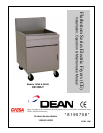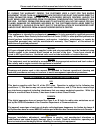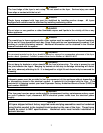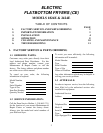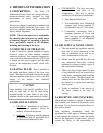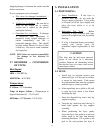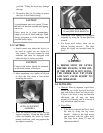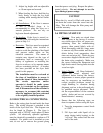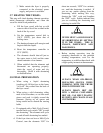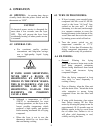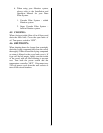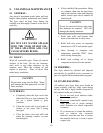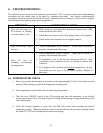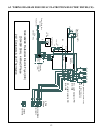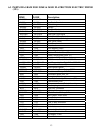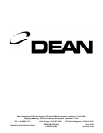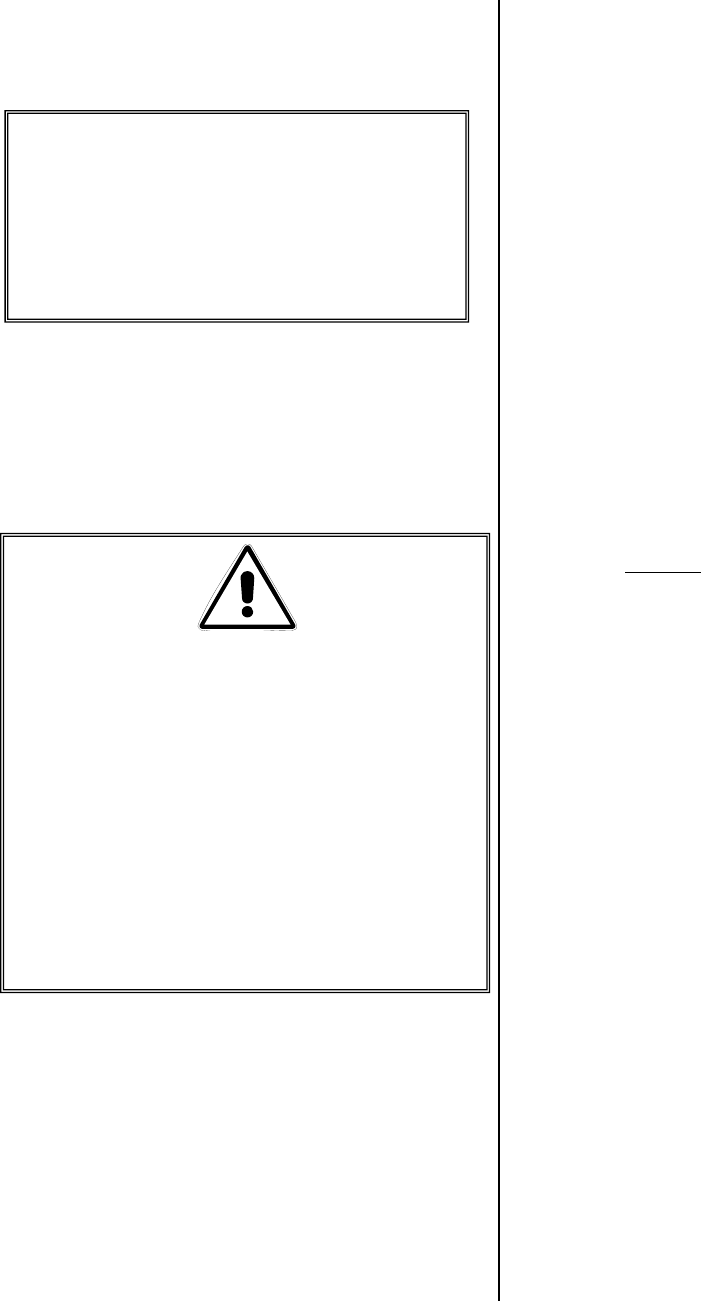
8
4. OPERATION
4.1 OPENING: At opening time, always
visually check that the power switch and the
thermostat are “OFF”.
4.2 GENERAL USE:
a. For consistent quality product,
convenience and long-term savings,
use a high-quality liquid frying
compound.
b. Although a temperature of 177°C
(350°F) is recommended for most
cooking operations, set the fryer at the
lowest possible temperature which
produces a high quality end product
while ensuring maximum life of frying
compound.
c. When the fryer is not in use, the
thermostat should be set lower than
that used during cooking.
4.3 TURN ON PROCEDURES:
a. If fryer is empty, pour enough frying
compound into the vessel to fill the
vessel to the lower "oil level” line
scribed on the rear wall. If solid
shortening is to be used, melt enough
in a separate container to cover the
heating elements in the bottom of the
vessel, then melt the rest in the vessel
by turning power switch off and on.
b. Turn the power switch on; set
temperature controller to 177°C
(350°F). In less than 30 minutes, the
frying compound temperature will
stabilize and be ready for production.
4.4 FILTERING:
a. General: Filtering the frying
compound assures a better taste to the
food being prepared, minimizes
flavors being transferred from batch
to batch, and increases frying
compound lifespan.
Filter the frying compound at least
once daily or more frequently if
cooking is heavy.
b. Prior to filtering, align the filter unit
with the drain valve. Attach the drain
valve extension to ensure frying
compound flows into the filter unit
safely.
c. If using solid shortening, clear return
lines before turning off the filter
motor by allowing the pump to run for
approximately 10-15 seconds once air
bubbles appear in the fry vessel from
the oil return line. Failure to do so
will allow solid shortening to cool,
solidify and clog the lines.
CAUTION
If electrical power service is disrupted for
more than a few seconds, turn the fryer
OFF. This will prevent the fryer from
accidentally heating oil when power service
is resumed.
WARNING!
IF USING SOLID SHORTENING,
NEVER MELT A BLOCK OF
SHORTENING BY SETTING IT
WHOLE IN THE FRYER VESSEL.
THIS IS DANGEROUS AND CAN
SHORTEN THE LIFE OF THE
SHORTENING, DAMAGE THE
ELEMENTS OR POSSIBILY
CAUSE A FIRE.



